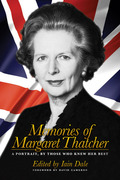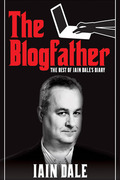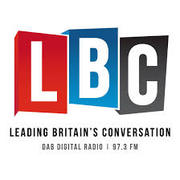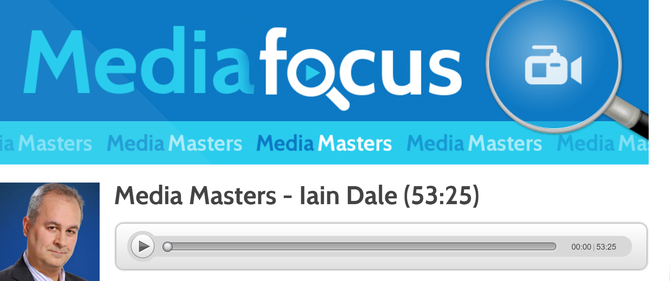UK Politics
Britain Will Have to Pay an EU Exit Bill, But It's Up to the EU to Explain How It Should Be Calculated
27 Aug 2017 at 14:15
Tomorrow morning David Davis will be heading to Brussels for what ought to be a very telling week of negotiations with Michel Barnier and his team. Both sides have been very vocal in the last few days and if their pre-briefings are anything to go by it could be a very awkward week indeed.
One of the sticking points is the insistence from Barnier that Britain must outline what it is prepared to pay with regard to the ‘divorce’ or ‘exit’ bill. Britain has so far refused to engage with this and has restricted any comments to the fact that we recognise we will meet any commitments that we have entered into, but not pay a penny more. So far, all we have heard from the EU is that the bill could be as much as 80-100 billion euros, a figure which is so ludicrous as to be beyond a joke. What we have so far not heard is any rational way of calculating this bill. It was said by the EU some time ago that both sides must agree a formula for how the bill will be calculated, but that seems to have fallen by the wayside.
The reason the EU is so prickly on this issue is that it will have a big black hole in its budget after Brexit. As the second biggest contributor to the EU budget, Britain’s financial munificence will be sorely missed. Barnier has been given a remit for screwing every last penny out of Britain and you can see why. There is also no recognition that Britain owns any assets as part of its EU membership or will be owed anything in return. They take the view that we’ve decided to leave, so hard luck. Britain may have contributed to fixed EU-owned assets, but that doesn’t give Britain any ownership rights over them. The fact that we have £9 billion tied up in the EU Central Bank seems not to concern them either. If this is seen as a divorce, in any divorce you divide up the assets accordingly. Not in the EU, it seems. Others don’t see it as a divorce, as divorces can involve maintenance payments. They see it as the EU equivalent of leaving a club, or maybe a gym. After you leave a club you don’t pay anything for other people to continue to use the club’s facilities after you leave.
If you look at it from a business point of view, the EU stance just doesn’t make sense. Not only are they not even willing to present an invoice, they’re asking us to explain how THEIR invoice should be calculated. It’s mad.
And we all know that if we did actually accede to their demand and tell them how much we think we should pay, they would laugh and demand double.
David Davis must surely take the view that if he EU believes we owe them any money, then it is up to the EU to tell us how much that is, not the other way around. Once they’ve told us, and explained how they have calculated it, then the proper negotiations on our exit bill can begin. That seems to me to be an entirely resonable stance on Britain’s part. Remainers, of course, will take the view that it’s up to us to follow the EU line. They always do. You’ll remember the ludicrous article in the Financial Times where they took great joy in calculating that our Brexit bill would be well in excess of £100 billion and we must jolly well pay it.
There is a view that from a legal point of view, we owe nothing. We leave on Marc 29 2019, and on that date our financial commitments end. That’s certainly the view of a House of Lords European Union Select Committee. In their report published in March they said…
“Although there are competing interpretations, we conclude that if agreement is not reached, all EU law—including provisions concerning ongoing financial contributions and machinery for adjudication—will cease to apply, and the UK would be subject to no enforceable obligation to make any financial contribution at all.”
However, they rightly warn…
“If the Government wishes to include future market access on favourable terms as part of the discussions on the withdrawal agreement, it is likely to prove impossible to do so without also reaching agreement on the issue of the budget.”
But let’s be clear, contrary to what Ros Altmann asserted in an interview with me on Friday, at no point have either Theresa May or David Davis said we don’t owe anything. Indeed, the Prime Minister has been very clear that we will meet our liabilities. So has Boris Johnson, the Foreig Secretary, although you may be forgiven for thinking otherwise. Back in July he was reported to have told the EU to ‘go whistle’ on a Brexit Bill. What he actually said was rather different. He was asked by Tory MP Philip Hollobone if he agreed with him that the EU could go whistle if they demanded a penny piece more than the £209 billion we have paid into the EU so far. Boris said that given some of th "extortionate " figures that had been bandied around by the EU so far, yes he did agree. He did not say we wouldn’t pay anything, as Ros Almann was asserting. He might have been wiser just to repeat the government line, simply that we will meet our commitments, but there you go. Here’s the evidence.
But it is incumbent on the EU to explain what our liabilities actually are. It remains a source of mystery as to why they have become unwilling to do that. Perhaps this quote from Iain Duncan Smith might shed some light on the fact that they seem frightened to do so.
""We have put into the place half a trillion pounds over the past 40 years which has never come back. That’s invested in all sorts of stuff there. We have intellectual property rights, physical investment in buildings, money in the European investment bank. We own a chunk of the EU, we don’t owe them any money. They are petrified that in two years time we will pull out and they will lose the second highest donor to the Budget.We should sweep that to one side and say honestly, these back of the envelope calculations do nobody any good.”
His view is that we owe nothing at all. I think that’s a stretch, but it’s certainly not all one way traffic.
British Assets
There is apparently a group of civil servants in Brexit Department who are drawing up a list of British owned assets in the EU – or EU assets that Britain can claim to have financed. This could include a proportion of EU property – embassies and official buildings.
The independent Brussels think tank Bruegal has calculated that the EU has around 152 billion Euros worth of assets.

It’s a moot point as to how one would calculate Britain’s share of these assets, but it is surely difficult to argue that that shouldn’t be any part of the formula used to calculate our eventual liability. Bruegl calculate that our share would be 20 billion euros. It’s worth reading Bruegel’s complete paper on how they come to this conclusion HERE
British Liabilities
The biggest fly in the ointment surrounds monies agreed in the EU budget but yet to be paid by member states, including Britain. According to a calculation by the FT’s Alex Barker in a paper for the Centre for European Reform, by 2018 there will be around 241 billion euros left to be paid. Half of this it to achieve “cohesion”, and 20% each for research and agriculture. Britain’s share of this expenditure is 29-36 billion euros according to Barker. Eastern European states are the ones who will benefit from the munificence and have drawn up plans accordingly. If Britain doesn’t pay anything, it will be left up to the other net-contributor countries to foot the bill – Germany, France, Ireland and the Netherlands.The vexed subject of pensions is another area of controversy. EU employees and member states do not contibute to a normal pension scheme. Pension payments to ex Commission employees or MEPs do not come out of some giant pension fund, they come out of that year’s EU budget. The average annual pension for an ex Eurocrat is about £60,000. The total EU pension liability is 67 billion euros. Could Britain be expected to pay a proportion of this, and if so, how would it be calculated? Or could Britain argue that it’s a liability that falls when we leave and the fact that British citizens will benefit from EU pensions is irrelevant as the moment they join the Commission they are supposed to renounce individual country loyalties? Given that only about 4% of EU staff are/have been British, the annual liability is around £80 million, a figure which will fall year on year.
Sean Ryan from RTE summed up the range of liability calculations in Alex Barker’s paper as follows…
“A key point of contention is what is the British share of the EU budget – is it calculated from Gross National Income (GNI) in which case Britain has to pay up 15% of the overall EU bill. Or is it calculated (as the British would prefer) from an average of actual contributions after the rebate – in which case it is 12.1%. Barker then works through three different scenarios for how much Britain could end up having to pay in an exit charge. A maximalist position would see the UK having to pay up all contingent liabilities upfront, and get no rebate money after 2018. If the UK share of the bils is set at 12% they would have to pay €57.4 billion. At 15% share, the cost to the UK would be €72.8 billion. Excluding contingent liabilities and rebate would see the figures drop to €48 billion and €61 billion, depending on the percentage share used. While factoring in maximum receipts for the UK would see the bill drop again to €24.5 billlion and €33.4 billion.
And this is where the real negotiating has to start. As Whelan says later in his article these things will be decided by politics rather than law. The EU can’t risk Britain walking away and paying nothing, and Britain realises it will have to pay something in order to get a trade deal. So when David Davis says that we have to move on to talking about trade, alongside the exit bill, you can see the logic. The question is: will the EU play ball? And I rather think they won’t. Not yet, anyhow.
























1 comment
Sign up via Facebook or Twitter to comment.